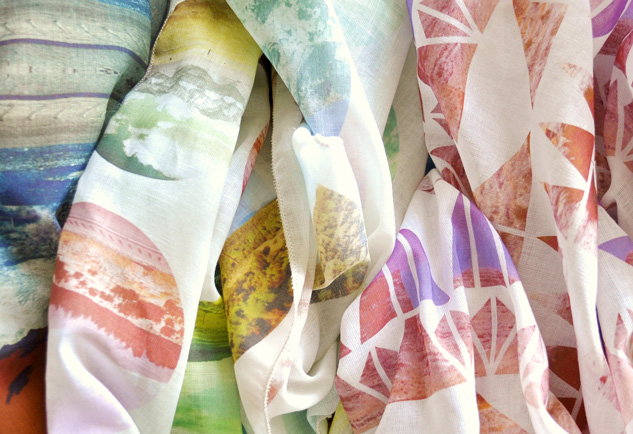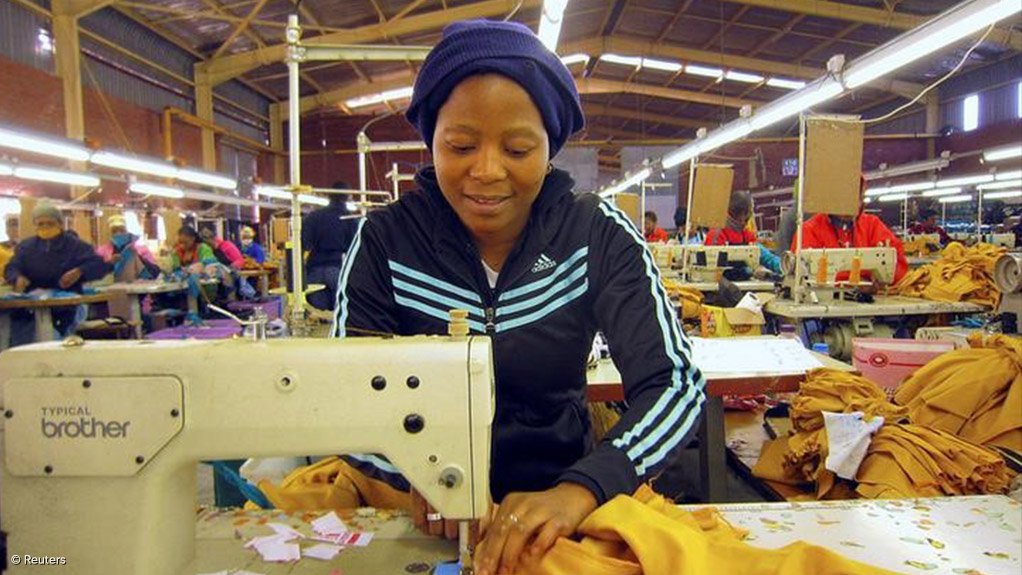Maker Space Innovation to Empower Women in Zimbabwe’s Textile Industry
Maker Space innovation can create jobs and sustainable livelihoods, particularly for women struggling with socio-economic challenges and business shocks, especially during the COVID pandemic.
Speaking at the official launch of Maker space Innovation for Women in the Textile Industry at the Bulawayo SME Center, ILO Director for Zimbabwe and Namibia, Philile Masuku, emphasised the importance of the initiative.

“This makers-based innovation should be used as a catalyst for the creation of more and larger jobs and sustainable livelihoods, especially for women who usually lack capital to retool due to a plethora of socio-economic challenges and the impact of business shocks, including the lingering effects of the 2019 COVID pandemic,” she said.
The Makerspace Innovation is the outcome of a collaborative effort between the ILO and UN Women, aimed at advancing the objectives of the 2022-2026 United Nations Sustainable Development Cooperation Framework. The project was launched in partnership with the Ministry of Women Affairs, Community, Small and Medium Enterprise Development, Bulawayo City Council, the National University of Science and Technology, the Bulawayo Chamber of SMEs, the National Social Security Council, and the National Council of Women.
“The provision of the state-of-the-art equipment under this makers-based innovation at the Bulawayo SME Center should be a trigger for productivity improvements, innovation, and value addition by micro, small, and medium enterprises, and a step towards formalisation,” Masuku stated.

The project’s objectives align with the country’s National Development Strategy (NDS-1) and the Sustainable Development Goals (SDGs), particularly the goal of leaving no one behind.
Masuku emphasised the need to address decent work deficits in the informal economy, which accounts for 86% of employment in Zimbabwe.
“Addressing decent work deficits in the sector can lift many workers and households out of poverty, drive productivity and improve incomes, help match the country towards achieving the 2030 Sustainable Development Goals, and also the objectives of the National Development Strategy, which is the NDS-1,” she explained.
Beyond the launch of the Maker space Innovation, the ILO will be providing training to micro, small, and medium enterprises through its Start and Improve Your Business program. This initiative aims to equip SMEs with essential business management skills, further supporting their transition towards formality and sustainability.
“The ILO’s goal is to train the micro, small, and medium enterprises with business management skills using the Start and Improve Your Business program, which we hope you will all benefit from. In conclusion, this is also to ensure that the SMEs are able to continue their transitions towards formality and sustainability, and also addressing the high vulnerability to shocks,” Masuku said.
The Maker space Innovation is viewed as a model intervention that can be replicated in the future, fostering productivity, innovation, and value addition in the textile industry. It is expected to create more and larger jobs, especially for women, and provide sustainable livelihoods.
Speaking at the same event, UN Women Country Representative, Fatou Lo said that the Maker Space Innovation program aims to advance gender equality through women’s economic empowerment.
It aligns with UN Women’s 2024 Women Economic Empowerment Strategy, focusing on workforce participation, access to economic resources, agency and decision making, as well as addressing the issue of unpaid care work.
“This specialized facility is designed exclusively for women entrepreneurs in the textile industry. Here, they will find not only cutting-edge equipment, but also a nurturing environment that fosters creativity, collaboration, and skill development,” Fatou Lo explained.
The maker space provides women with access to specialized equipment, training, and support to enhance their livelihoods. By bridging gaps in equipment access, the facility empowers women to actively engage in the value chain, increasing their productivity and competitiveness in the industry.
However, Fatou Lo emphasised that the launch of the Maker Space Innovation program is just the beginning. She called for collective efforts to scale up women’s economic empowerment initiatives across the country and advocate for interventions that promote inclusivity, equity, and economic justice.
“Ladies and gentlemen, distinguished guests, our work doesn’t end here. Collectively, we must continue to scale up women’s economic empowerment initiatives across the country. We must continue to advocate for interventions that promote inclusivity, equity, and economic justice,” she further noted.
The launch of the Maker Space Innovation program was met with enthusiasm from participants, including women entrepreneurs present at the event. They expressed their appreciation for the specialized facility and the opportunities it provides for their businesses to succeed and grow.
The launch event was attended by government officials, including the Minister of Women Affairs, Community, Small and Medium Enterprise Development, Honourable Monica Mutsvangwa, represented by Dr. Mavis Sibanda, the Ministry’s Permanent Secretary, and the Minister of State for Provincial Affairs and Devolution for Bulawayo Metropolitan province, Judith Ncube.
The collaboration between the ILO, UN Women, and various government and private sector partners demonstrates a concerted effort to empower women in the textile industry and drive sustainable development in Zimbabwe’s informal economy.
#News in Bulawayo #News in Zimbabwe Artist Arts BCC Bulawayo Bulawayo City Council Bulawayo economy Bulawayo industry Bulawayo news Bulawayo Police Bulawayo Water Bulawayo Water Crisis Bulawayo Women entrepreneurship Business Women Cholera Community Culture Currency Drug Abuse Drugs Economy Farmer Farmers Farming Informal Sector Informal Traders Mining MSMEs Music News in Bulawayo News in Zimbabwe Police Police in Bulawayo Vendor Vendors water Water Crisis Water Shortage water supply issue Women entrepreneurship ZESA Zimbabwean economy Zimbabwe news Zimbabwe water crisis ZRP












